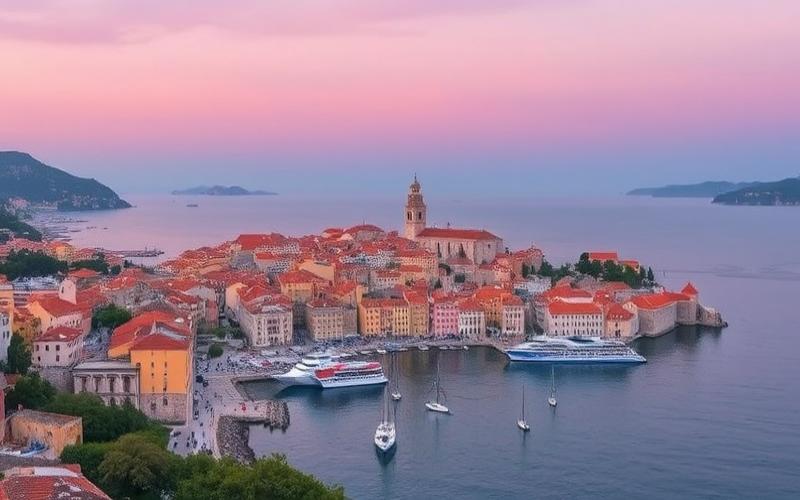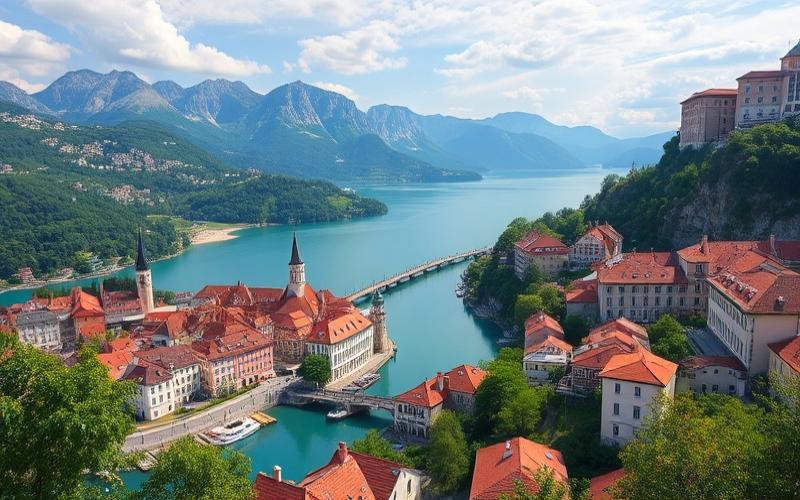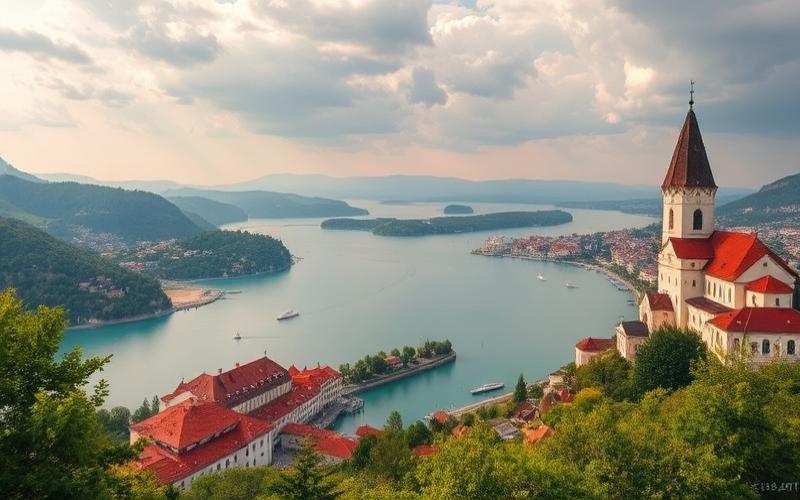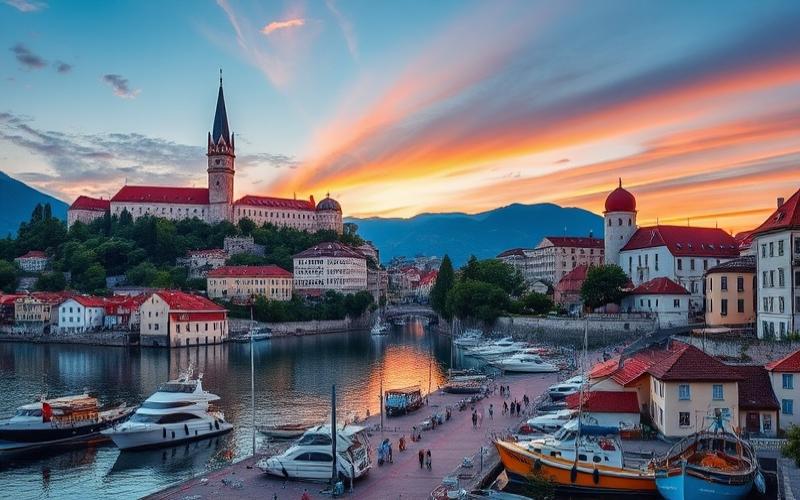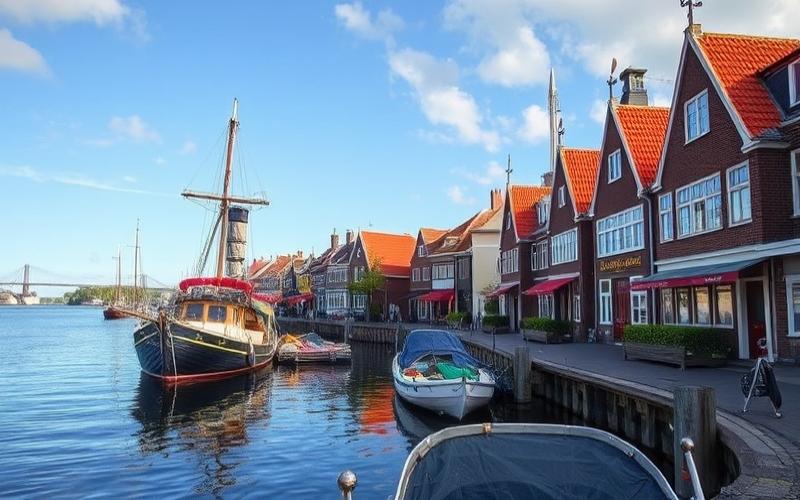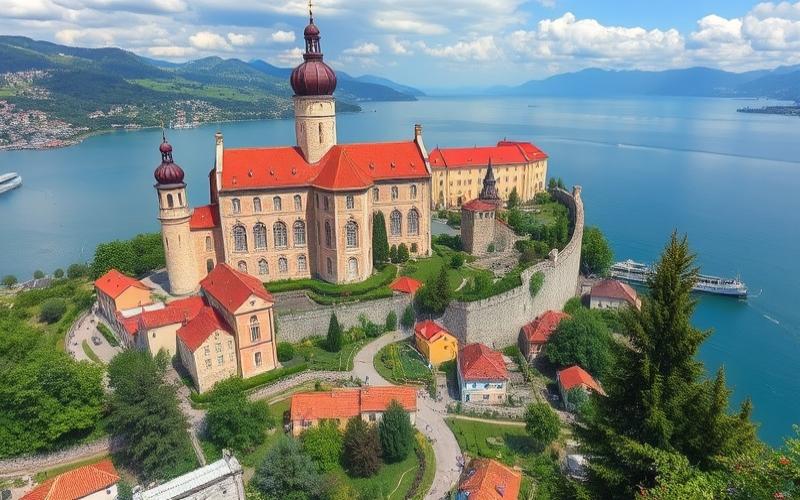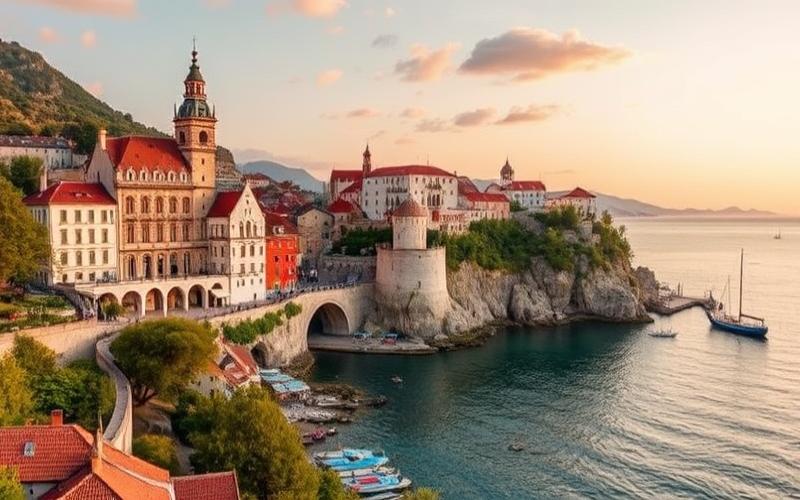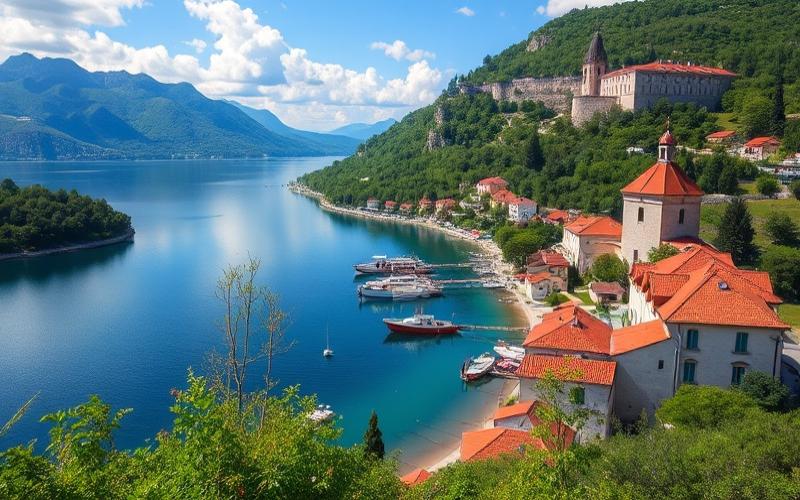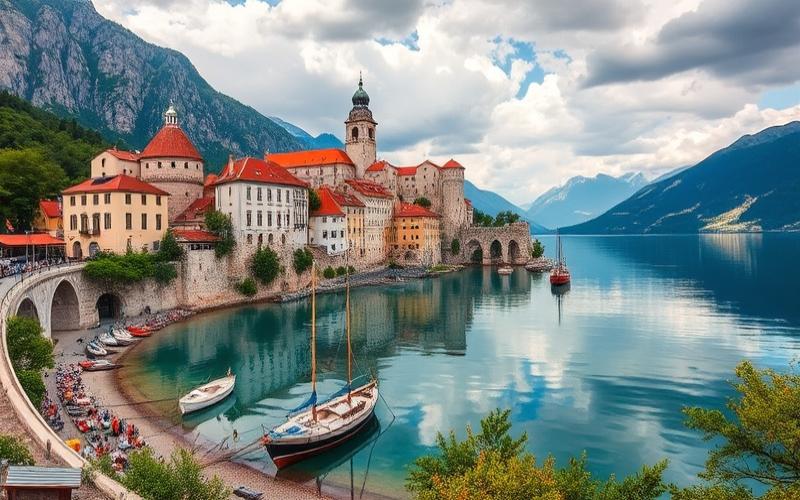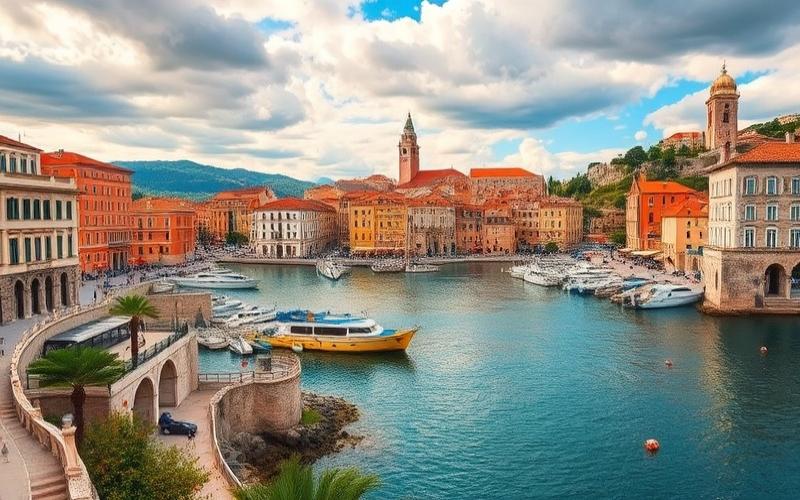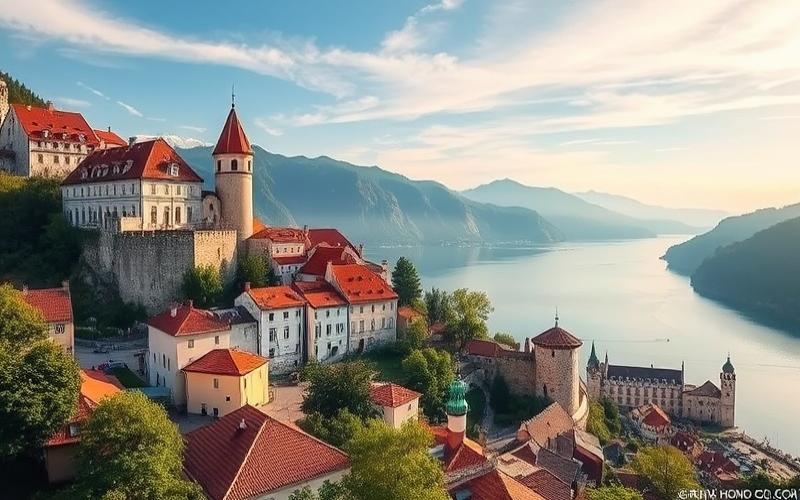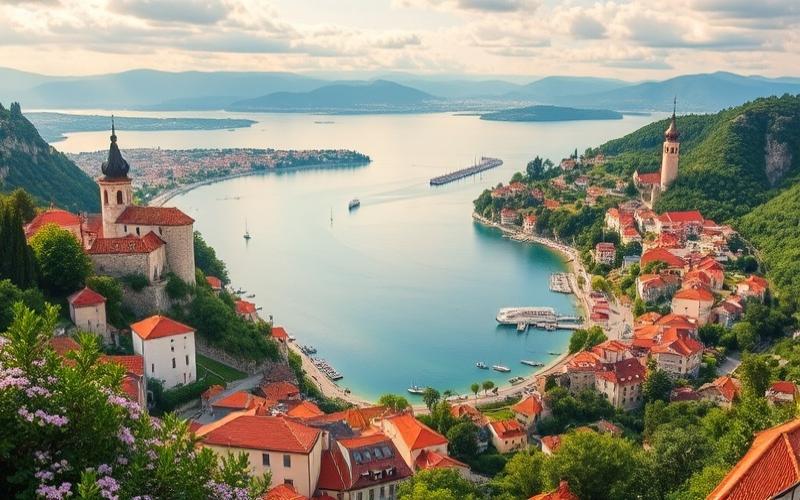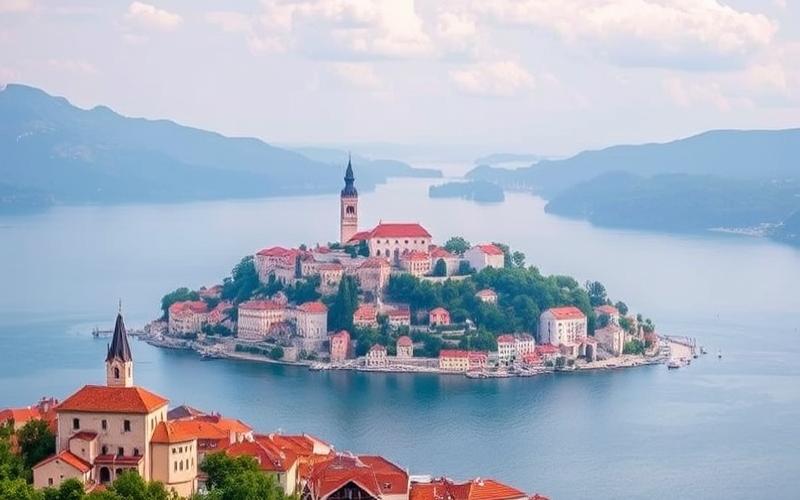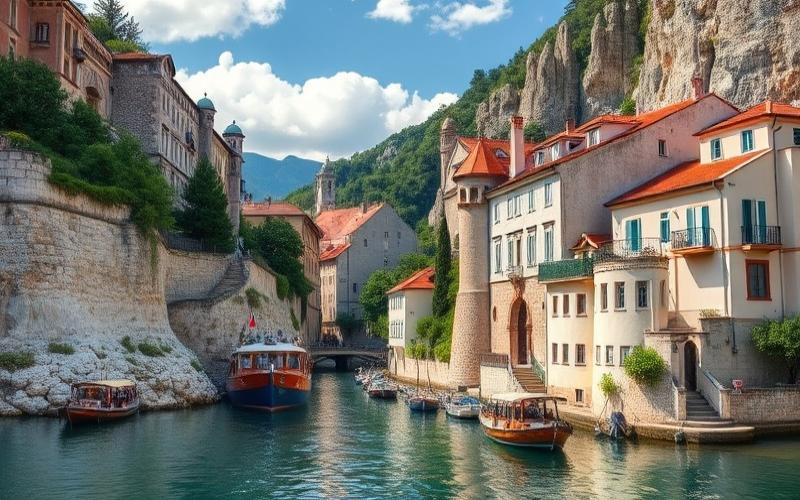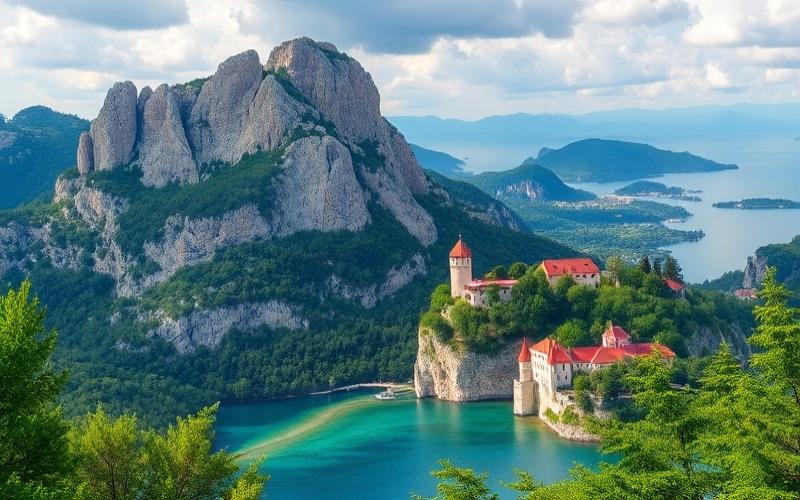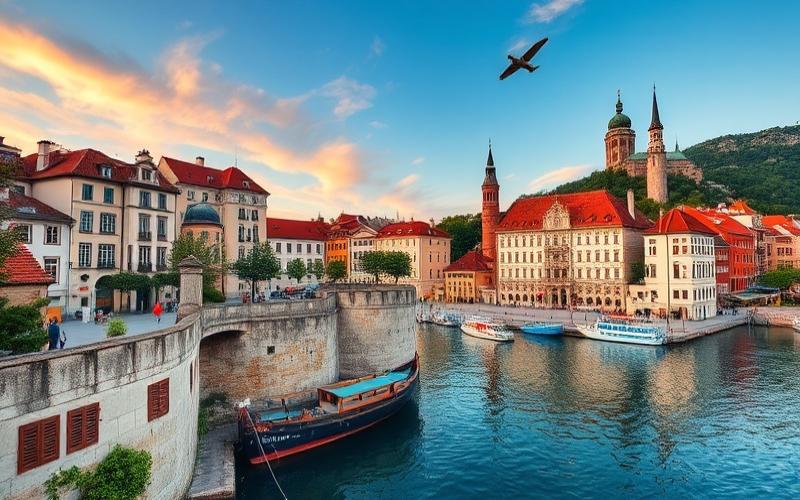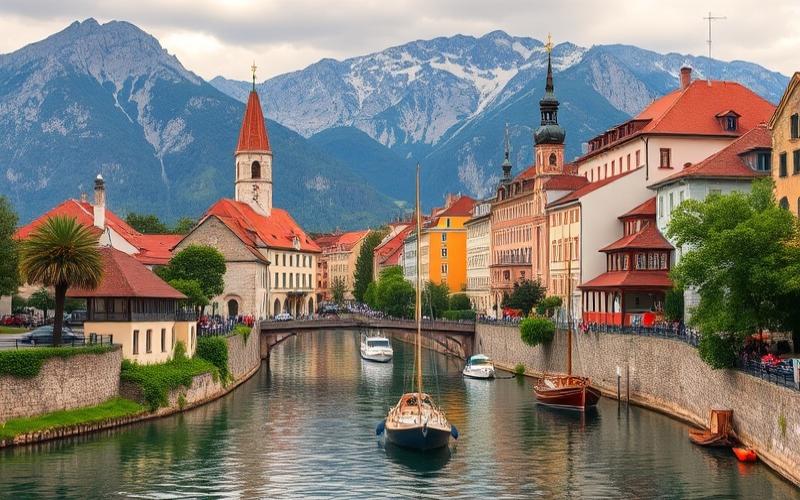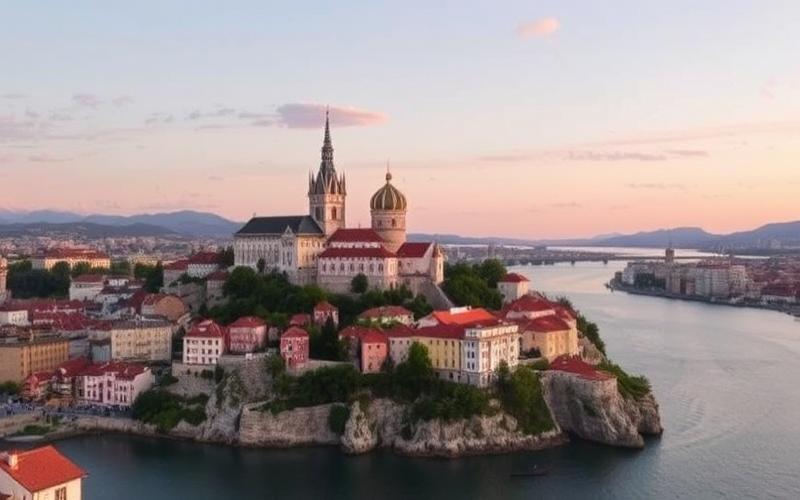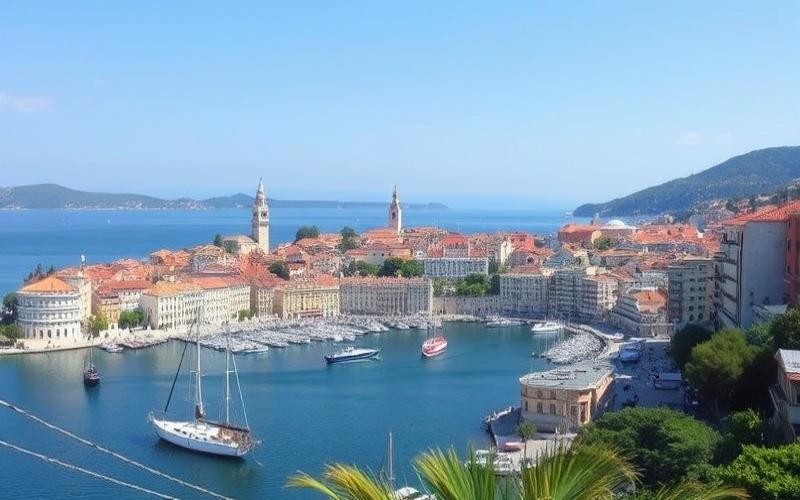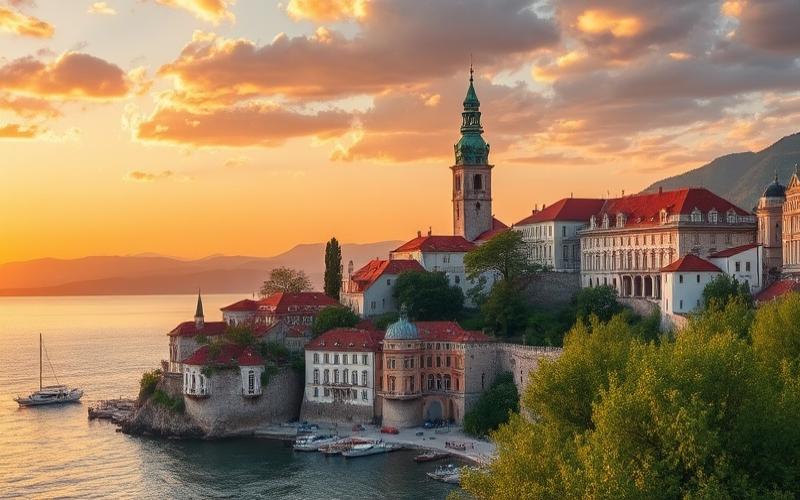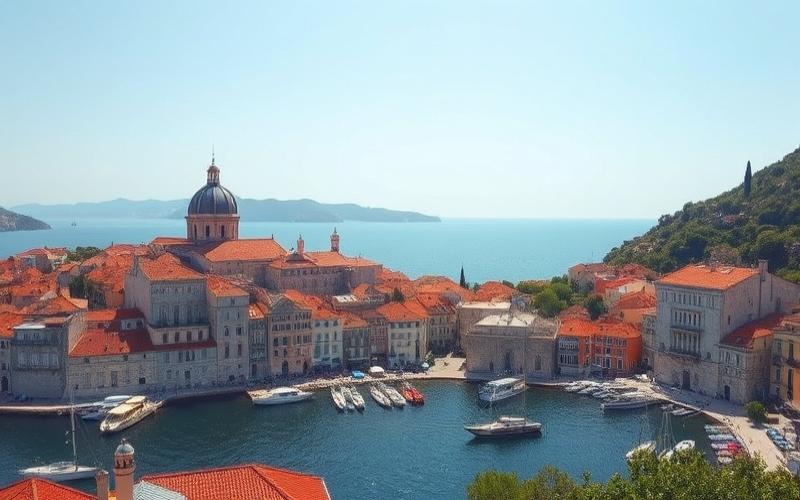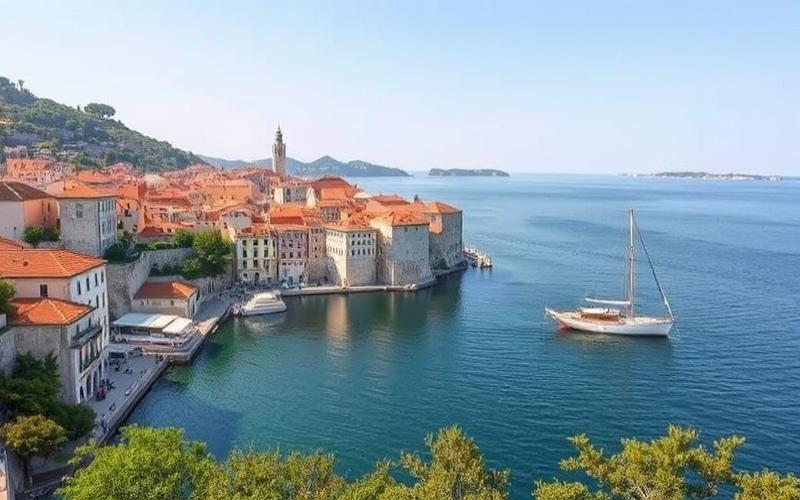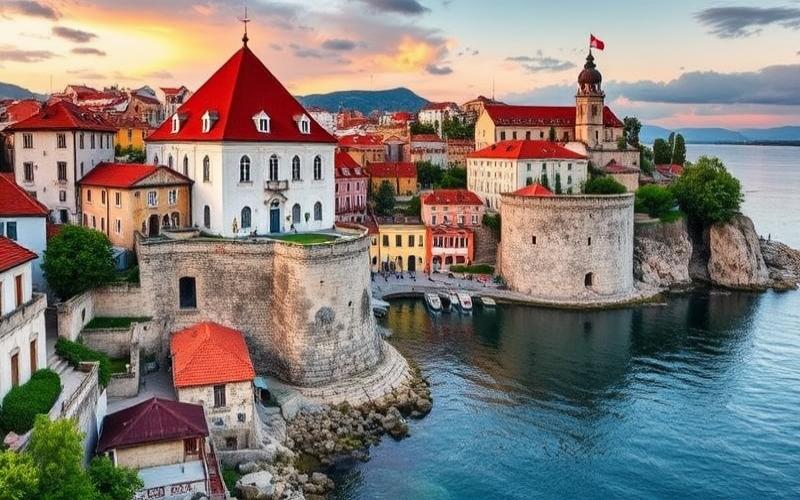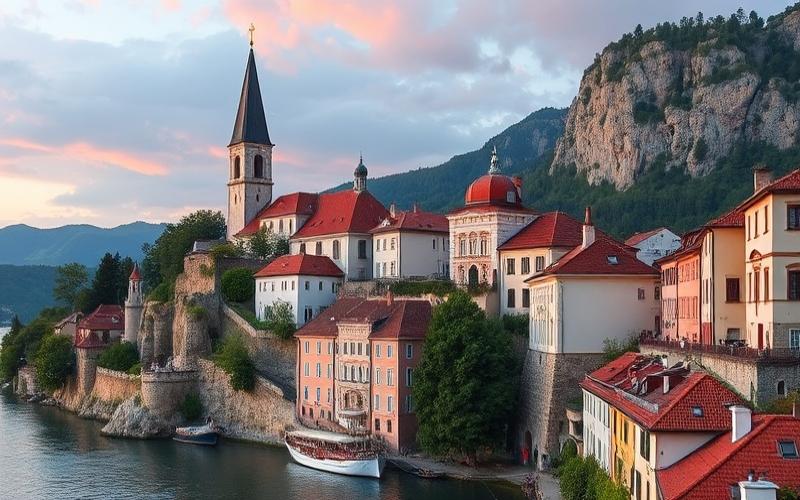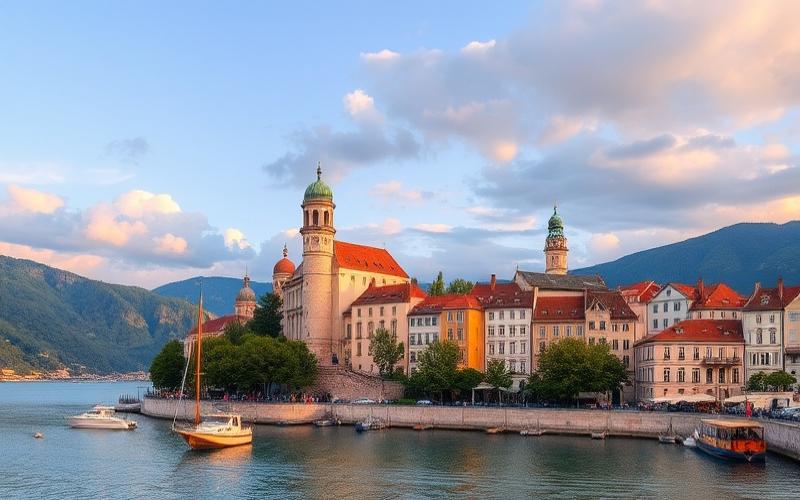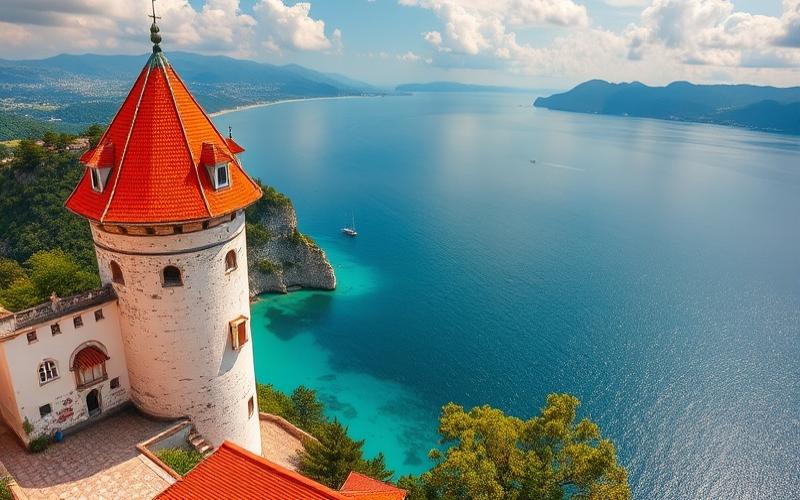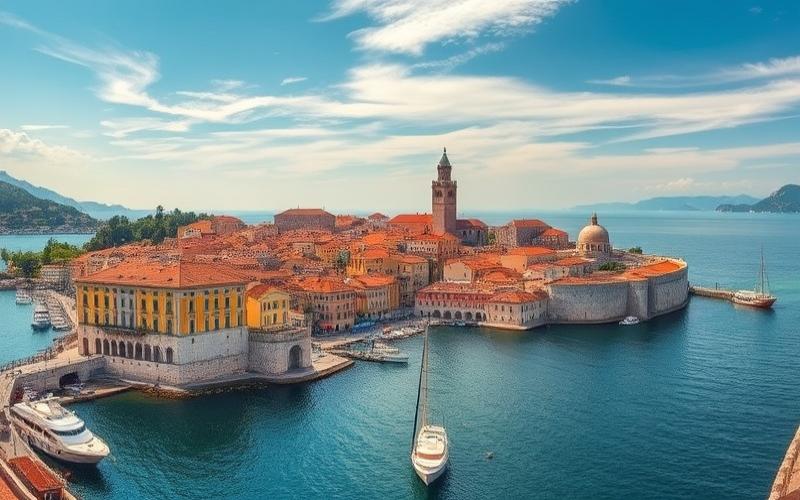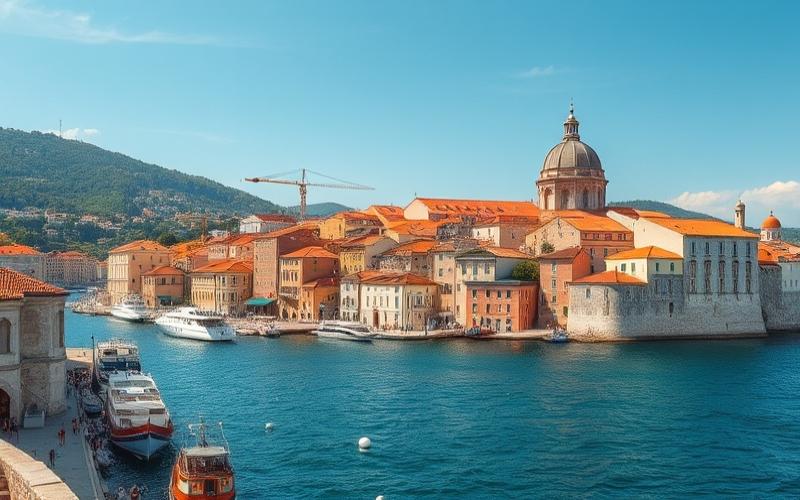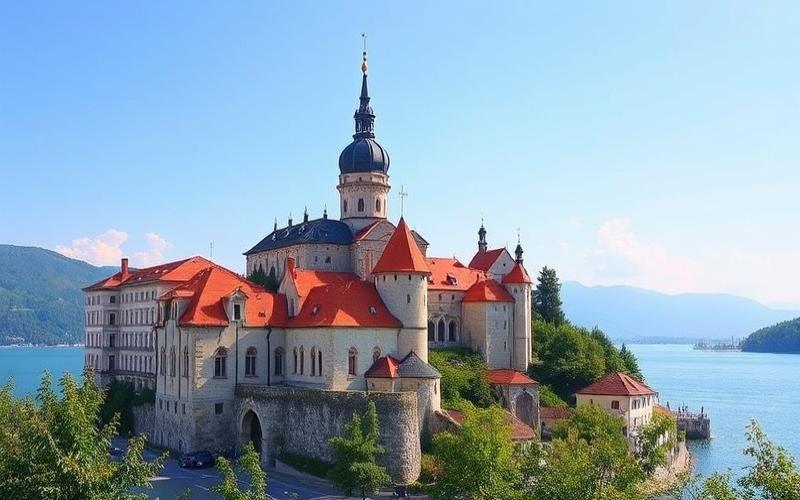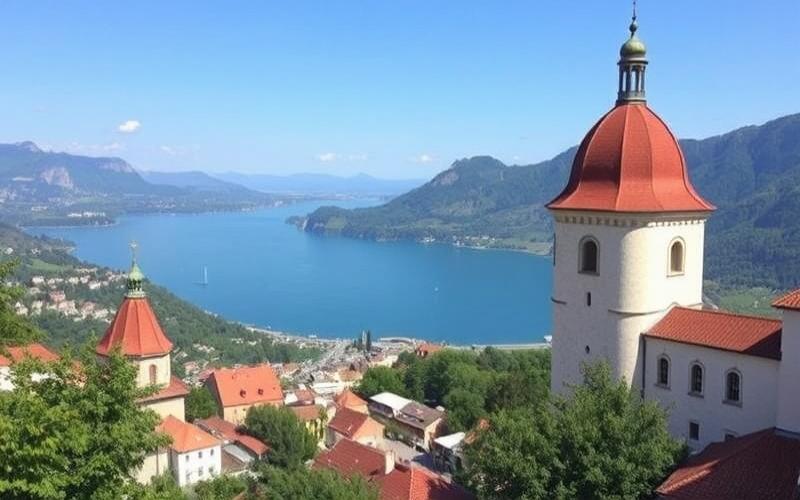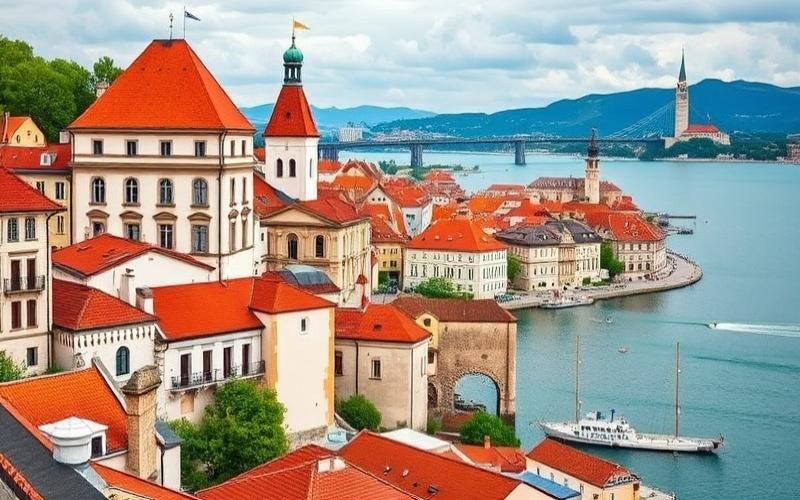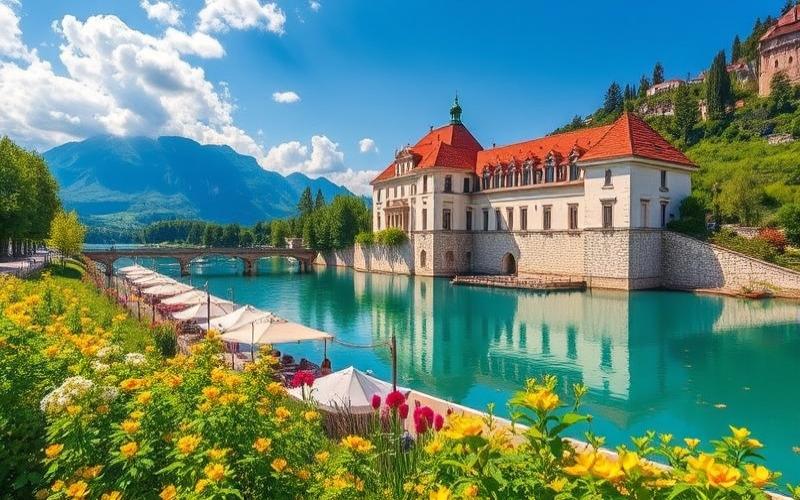
 Published on and written by Cyril Jarnias
Published on and written by Cyril Jarnias
Croatia’s real estate market is booming, attracting numerous investors eager to capitalize on its dynamic growth and enchanting landscapes. However, rising prices and financial barriers restrict access for some.
This is where real estate crowdfunding comes into play, opening new opportunities for those wanting to get involved in this sector without substantial capital. But how does this innovative approach work that’s attracting more and more potential investors?
Understanding the mechanisms of real estate crowdfunding in Croatia could be the key to strategic investing and taking advantage of the numerous opportunities this country offers.
Introduction to Real Estate Crowdfunding in Croatia
Real estate crowdfunding involves collecting funds from individual investors through online platforms to finance a real estate project managed by a developer or property merchant. The investment can take the form of a loan (debt crowdfunding, majority) or equity participation in the project. Upon completion and depending on the project’s success, investors receive their capital plus interest or a profit from resale. The average investment duration ranges from 1 to 3 years.
General Operation:
- A developer identifies and structures a real estate program.
- They approach a platform to raise necessary funds from the public.
- Individuals invest directly through the platform, often starting from €1,000.
- At project completion (sale/realization), investors recover their investment with interest if everything goes well.
Overview of the Croatian Real Estate Market and Its Specifics:
| Aspect | Key Data & Specifics |
|---|---|
| Post-Covid Growth | Dynamic recovery since 2022 |
| Average Prices | Zagreb ~€2,400/m²; coast >€3,000/m² |
| Demand | Strong tourist demand on the coast; residential growth in Zagreb |
| Supply | Relatively low in some tourist regions |
| Regulation | Progressive modernization; adaptation to European standards |
According to Eurostat, the Croatian market shows annual real estate price increases exceeding 10% between 2021 and 2024.
Emergence and Growth of Real Estate Crowdfunding in Croatia:
The first specialized platforms appeared in the late 2010s. Since Croatia’s entry into the EU and then the eurozone (2023), international interest has accelerated the sector’s development.
Popular Platforms in Croatia:
- CrowdEstate Croatia
- EstateGuru (regionally present)
- CroInvest.eu
These platforms mainly offer:
- Crowdfunding for new constructions on the coast
- Renovation/upgrading of urban housing
Growth is rapid: according to local experts, “the total volume financed through crowdfunding has doubled each year since 2021,” particularly due to “increased appetite for this type of alternative investment.”
Advantages and Disadvantages for Investors in Croatia:
Advantages:
- Easier access to the real estate market starting from a few hundred/thousand euros
- Attractive gross annual returns (8–12%)
- Possible geographical diversification without direct management
Disadvantages:
- High risk related to potential developer default
- Illiquid investment for the entire planned duration
- Still young regulatory market, with room for improvement in oversight
Concrete Examples of Crowdfunded Projects in Croatia:
Non-exhaustive list:
- Project “Zagreb Urban Living”, conducted via CrowdEstate Croatia — Construction of a new residential building; amount raised: ≈€700,000; target return announced: +9% annual.
- Renovation “Adriatic Apartments”, Split, platform EstateGuru — Complete rehabilitation for seasonal tourism; crowdfunding over €500,000.
- “Dubrovnik City Villas”, crowdfunding via CroInvest.eu – Premium project for international second homes.
Experts emphasize that “these operations have allowed several hundred individual European investors – many residing outside Croatia – to indirectly access local dynamism.” Meanwhile, these projects also help partially meet high demand in specific segments like high-end tourist residences.
The rapid development of Croatian real estate crowdfunding thus reflects both the renewed attractiveness of the sector and its gradual opening towards alternative European finance.
Good to Know:
Real estate crowdfunding in Croatia allows investors to collectively finance real estate projects through online platforms, thereby reducing traditionally high entry barriers. This funding method is experiencing rapid growth in Croatia, supported by platforms like CroInvest and BrickWise, in response to the dynamic Croatian real estate market marked by strong tourist and residential demand. According to a 2022 report, the sector showed 30% growth, attracting an increasing number of local and foreign investors. Advantages include portfolio diversification and the ability to access projects with lower investment amounts, although risks include lack of liquidity and dependence on project success. Experts like Marko Jurčić show cautious optimism, highlighting increased transparency and potential returns. Recent projects, such as the renovation of vacation residences on the Dalmatian coast, demonstrate the success of this crowdfunding and its positive impact on the Croatian real estate sector.
Advantages of Participatory Investment in Croatian Real Estate
Participatory investment in Croatian real estate offers several major advantages for investors, including portfolio diversification, easier access to attractive real estate projects, and risk sharing.
List of Main Advantages:
- Accessible Diversification: Crowdfunding allows investing with small amounts (e.g., starting from €500), making it possible to build a diversified portfolio including different property types and locations without significant capital.
- Access to Exclusive Projects: Through crowdfunding, small investors can participate in real estate operations previously reserved for institutions or wealthy individuals.
- Risk Sharing: Financial risks are distributed among all contributors. Thus, each participant limits their individual exposure while benefiting from the project’s overall potential.
- No Direct Management: The investor doesn’t have to manage the property or tenants directly; platforms typically handle all administrative and operational procedures.
Comparison Table: Potential Returns
| Investment Type | Estimated Average Return | Specific Advantages |
|---|---|---|
| Real Estate Crowdfunding | Approximately 17%/year | Easier access, increased diversification |
| Traditional Rental Real Estate | 7–9%/year (Croatia) | Regular income, strong seasonal demand |
| European Stocks | Variable (~6–8%/year) | Higher liquidity |
Returns offered by real estate crowdfunding can thus exceed those of other traditional investments while remaining correlated to a historically resilient sector.
Specific Advantages of the Croatian Market:
- Constant growth in international tourism, generating sustained demand for seasonal rentals (approximately 20 million tourists/year).
- Attractive real estate prices and secure legal framework, notably absence of annual property tax and advantageous capital gains taxation after two or three years.
- Concrete Examples:
- An apartment purchased in Zadar for €120,000 can generate up to €18,000 net annually with optimal occupancy.
- Net rental returns up to 9% in some tourist cities like Split or Dubrovnik.
Crowdfunding has enabled in several concrete cases:
- Fully financing tourist projects in the Adriatic that would have been inaccessible without collective contribution.
- Bypassing classic difficulties related to local bank credit or limited equity through simultaneous contributions from an international investor community.
The collaborative aspect also fosters the emergence of:
- An engaged community sharing analyses and feedback,
- Easier access to information on each project,
- And sometimes even consultative decision-making power during key stages (strategic choices, reporting…).
In summary
Real estate crowdfunding in Croatia combines attractive returns, accessible diversification, and unique tourist dynamism. It thus offers a modern collaborative opportunity suited to both small and large investors seeking performance and relative security in a promising market.
Good to Know:
Investing in Croatian real estate through crowdfunding offers several advantages, including portfolio diversification and access to real estate projects normally inaccessible to small investors. This investment method allows risk sharing and potentially interesting returns, especially in a country where the real estate market is boosted by significant tourist growth. For example, successful projects like residential or hotel complexes have been funded by numerous small investors, thus overcoming the financial barriers of large projects. The success of these initiatives relies on the collaborative aspect that encourages an active and well-informed community. These projects benefit from demand supported by rising tourism, a particularity that strengthens the appeal of investing in Croatia through crowdfunding.
How to Choose Reliable Crowdfunding Platforms in Croatia
Key Criteria for Choosing a Reliable Crowdfunding Platform in Croatia:
- Platform Reputation
Prefer platforms with long experience and good notoriety, recognized for their seriousness.
Examples: GoGetFunding, WhyDonate, Indiegogo, CrowdX.eu, PeerBerry. - User Reviews
Consult feedback on specialized forums, review sites, or social media to assess satisfaction and reliability. - Clarity of Terms of Use
Rules, refund policies, obligations, and investor rights must be clearly stated and easily accessible. - Service Fees
Compare the percentage charged by the platform on collected or invested amounts, as well as any payment processing fees.
| Platform | Platform Fees | Payment Fees |
|---|---|---|
| GoGetFunding | 4% | 2.9% |
| Kickstarter | 5% | Variable |
| Indiegogo | 5% | 3-5% (third-party) |
| WhyDonate | 0% | Variable |
Project Transparency
Each project must provide detailed information about the project team, fund allocation, projected timeline, and risks.
Examples of Recognized Platforms in Croatia:
| Platform | Funding Type | Main Specifics |
|---|---|---|
| GoGetFunding | Donation, recurring collection | Popular, flexible platform |
| Indiegogo | Donation, reward, equity | High success rate, varied options |
| Kickstarter | Donation, reward | “All or nothing” model, international |
| CrowdX.eu | Fractional real estate, equity | Specialized in SMEs and real estate |
| PeerBerry | Peer-to-peer lending (P2P) | Investment in loans |
| WhyDonate | Donation | No-fee platform, wide reach |
Tips for Verifying Real Estate Project Information:
- Read the project sheet carefully: location, building permits, technical details, financing plan, schedule.
- Analyze the real estate operator’s profile (experience, past achievements, legal structure).
- Check for guarantees (mortgage, surety, insurance).
- Ensure the presence of expert reports or independent audits.
- Verify consistency of announced figures (price per m², expected profitability, operation duration).
Local Regulations Governing Crowdfunding in Croatia:
- Crowdfunding platforms are subject to European legislation (Regulation (EU) 2020/1503), applicable in Croatia, which imposes:
- A licensing procedure to operate legally.
- Transparency, information, and conflict of interest management obligations.
- Protection for non-professional investors (investment caps, risk warnings).
- Real estate projects must also comply with local regulations regarding urban planning, taxation, and investment.
Practical Tips:
- Prefer licensed platforms or those with European authorization.
- Read regulatory information documents carefully.
- Compare several platforms before committing.
- Verify that the platform clearly displays its conditions, fees, and regulatory status.
Good to Know:
To choose reliable crowdfunding platforms in Croatia, it’s crucial to assess the platform’s reputation by consulting user reviews and verifying the transparency of proposed projects. Platforms like CroInvest and Funderbeam are well-established in the Croatian market. Ensure that terms of use are clear and service fees are competitive. Also verify that real estate projects present detailed information and that developers are responsive to your questions. Finally, ensure the platform complies with local regulations, particularly the law on participatory financing that governs these activities in Croatia, to guarantee their legality and protection for investors.
Warning:
Ensure that the platform and project comply with Croatian and European legislation before any investment.
Never invest money you cannot afford to lose.
Key Factors for Successful Real Estate Crowdfunding in Croatia
Understanding Local Laws and Regulations
Regulation of real estate crowdfunding in Croatia relies on recent reforms governing taxation and property ownership.
- Since 2025, a tax on real estate applies to all property owners, including foreign investors, implying equal treatment but also increased vigilance regarding applicable taxation.
- Reforms also aim to stabilize the market, limit speculation on second homes, and promote long-term rentals, with tax exemptions for certain uses (e.g., primary rental for over ten months per year).
- It is therefore essential to master potential restrictions, especially for non-residents and property types authorized for crowdfunding, to avoid any administrative or tax blockages.
Importance of Due Diligence
Project success depends on thorough analysis of each opportunity:
- Verification of project financial viability (business plan, expected profitability, financing structure).
- Check of real estate developer’s reputation and experience.
- Examination of legal documents (property titles, building permits, compliance with local standards).
This approach helps limit risks of payment default, delivery delays, or legal disputes.
Selection of Crowdfunding Platforms
The following criteria are decisive for choosing a reliable platform:
- Licensing and regulatory compliance in Croatia.
- Transparency on proposed projects: access to financial data, audits, complete documentation.
- Presence of evaluations and testimonials from users who have already invested via the platform.
- Ease of access to customer service and clarity of general conditions.
A summary table of selection criteria:
| Criterion | Importance for Investor |
|---|---|
| Regulatory License | Legal security, fund protection |
| Project Transparency | Ability to assess risk |
| Reviews and Testimonials | Experience feedback, service reliability |
| Customer Support | Incident management, support |
Diversification Strategies to Minimize Risks
- Invest in different project types (residential, commercial, tourist).
- Diversify geographical regions, particularly between major cities, tourist areas, and emerging regions.
- Spread investments across multiple developers and platforms.
- Diversify durations and project models (construction, renovation, buy-sell).
Diversification example:
- 40% in residential apartments in Zagreb
- 30% in tourist residences on the coast
- 30% in commercial premises in emerging regions
Impact of Croatian Real Estate Market Fluctuations
Returns are strongly influenced by price evolution, rental demand, and regulation.
- Recent reforms aim to limit speculation, which may stabilize the market medium-term but reduce potential for rapid capital gains.
- Investors must therefore monitor economic forecasts (GDP growth, vacancy rates, demographic evolution) and adapt their strategy accordingly.
- Regular analysis of the local market allows anticipating cycles and selecting projects offering the best risk/return ratio.
Each factor thus contributes to limiting risks, maximizing profitability, and ensuring legal compliance, essential conditions for success in real estate crowdfunding in Croatia.
Good to Know:
To succeed in real estate crowdfunding in Croatia, it’s crucial to master local laws and regulations concerning crowdfunding and real estate, paying attention to potential restrictions for foreign investors. Rigorous due diligence is essential; it involves verifying project financial viability and developer reputation. The choice of crowdfunding platforms should be based on their reliability, transparency of proposed projects, and feedback from previous users. Diversifying your portfolio, by investing in various real estate project types or geographical regions, helps mitigate risks. Finally, it’s important to monitor Croatian real estate market fluctuations, as they can strongly impact returns, and consider economic predictions to adjust investment decisions accordingly.
Disclaimer: The information provided on this website is for informational purposes only and does not constitute financial, legal, or professional advice. We encourage you to consult qualified experts before making any investment, real estate, or expatriation decisions. Although we strive to maintain up-to-date and accurate information, we do not guarantee the completeness, accuracy, or timeliness of the proposed content. As investment and expatriation involve risks, we disclaim any liability for potential losses or damages arising from the use of this site. Your use of this site confirms your acceptance of these terms and your understanding of the associated risks.


